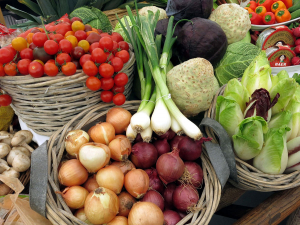Gene Technology Bill: Impact on Winegrowers and New Zealand Winegrowers' Response
Genetic modification has long been a topic of hot debate.
 The NSW Government says it will lift its moratorium on genetically modified food crops from 1 July 2021.
The NSW Government says it will lift its moratorium on genetically modified food crops from 1 July 2021.
The NSW Government has announced that a moratorium on genetically modified (GM) food crops will be lifted in the state from 1 July 2021, ending an 18-year ban.
The lifting of the ban on genetically modified crops will have immediate application for canola.
Director of the Sydney Institute of Agriculture, Professor Alex McBratney, said there are pros and cons to the decision to lift the ban on GM crops in NSW, which will align now with the rest of Australia.
“If we use genetic technology to improve the nutritional profile of crops, such as vitamin levels in rice, or by making crops more water-efficient, that will be a definite positive. We’ve already seen a dramatic drop in insecticide use in GM cotton grown in Australia.
“However, crops modified to be ‘Round-Up ready’ can encourage overuse of herbicides when we should be looking at alternatives, such as camera spraying and other precision agriculture methods.”
McBratney says it is important to remember that the only commercialisation of GM crops has been for canola and cotton.
“Genetically modified wheat hasn’t been commercialised anywhere in the world so far, so that offers a big challenge for our researchers.”
He says there are some markets, largely in Europe, that don’t want GM products – so it will be important to label GM products appropriately.
Meanwhile, Sydney Institute of Agriculture’s dean of science and soil scientist Professor Iain Young says the lifting of the moratorium on GM crops offers a host of opportunities, at a time when we have to secure our food production. “The lessons from Europe show us we must be proactive in dealing with public concerns and potential misconceptions.”
New Zealand and Chile have signed a new arrangement designed to boost agricultural cooperation and drive sector success.
New DairyNZ research will help farmers mitigate the impacts of heat stress on herds in high-risk regions of the country.
Budou are being picked now in Bridge Pā, the most intense and exciting time of the year for the Greencollar team – and the harvest of the finest eating grapes is weeks earlier than expected.
The Real Estate Institute of New Zealand (REINZ) has released its latest rural property report, providing a detailed view of New Zealand’s rural real estate market for the 12 months ending December 2025.
Rural retailer Farmlands has released it's latest round of half-year results, labeling it as evidence that its five-year strategy is delivering on financial performance and better value for members.
OPINION: "We are back to where we were a year ago," according to a leading banking analyst in the UK, referring to US president Donald Trump's latest imposition of a global 10% tariff on all exports into the US.